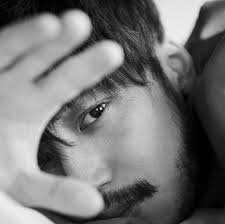Dances with Wolves
Originally known as Hunter, this drama was re-titled to The Wolf Hunter which is consistent with its original Chinese name, 猎狼者. It is neither focused on the animal nor about hunting it. The “wolf” here (狼 or ‘lang’) is a metaphorical representation of poachers, and the term is used frequently throughout the drama.
I’m just going to say this right off the bat. To me, The Wolf Hunter is one of the year’s best C-dramas. In terms of the production values and design, screenplay, cast, action choreography, cinematography, and the absolutely stunning vistas of the breathtaking untamed Xinjiang wilderness and natural landscapes where principal photography took place. There are countless beautifully framed shots and scenes littered throughout that watching this drama for the scenery alone is quite worth it.
Having said all that, the drama is not without its flaws. There have been reports that the drama was scaled down from 12 to 8 episodes, purportedly to cut out the more violent and gory scenes. Whatever the reasons may be, certain editing issues and scene transitions that affect the continuity of the story development are clearly noticeable. The drama unfortunately also lacks a compelling original music composition as part of its soundtrack to match the grandeur of the visuals. Last but not least, I wanted to catch more glimpses of the furry wildlife that the rangers are protecting but, to no avail. Sadly, all I got were horses and sheep.
Notwithstanding the gorgeous visuals, this drama may not appeal to everyone because of the inherently dark nature of the story.
The drama is set in China’s Northwestern frontiers of Xinjiang where regions of vast deserts and mountains can be found. The narrative is based on the struggles faced by local law enforcement (the police and auxiliary force of rangers) in protecting the abundant wildlife in the surrounding nature reserves from unscrupulous poachers whose illegal fur trading activities have been running rampant for years with little regard for the law.
The plot centres on the titular character, Wei Jiang, as he overcomes the burden of guilt from his past (along with PTSD) to wreak vengeance upon the very same group of poachers who had brutally murdered his partner 5 years prior to the events of the present day. It is a simple story which is conveyed in a no-nonsense, raw, gritty and visceral manner that explores themes of retribution, redemption, family, and friendship. The tone is sombre with atmospherics that at times feel dismal and dark. The depiction of violence is balanced with the presence of psychological suspense. Some elements of slice-of-life are also added into the storytelling.
As a psychological thriller, the drama succeeds in delivering palpable tension and suspense. There are many such moments that are akin to a Mexican standoff where you just don’t know what is going to happen next. The action sequences are quite expertly executed as well, with scenes of gun battles, car and horse chases, close range melee in both the great outdoors and enclosed spaces. The dialogue, delivered as a live recording instead of the usual overdubbing, is compelling and realistic.
Kudos to the production crew for not only providing authentic gear and equipment, but also for achieving the right look that convinces me the actors really do belong in the actual setting. Everyone looks weathered and rugged, with the right amount of facial hair and sunburn to match their equally ragged outfits.
In terms of the acting, I thought that the main cast are exceptional and fit perfectly into their respective roles. Qin Hao needs no introduction as the consummate mastery of his craft clearly shows in his portrayal as the lead, Wei Jiang. I’m quite impressed with Yin Fang who plays the second lead, policeman Qin Chuan. He is relatively new in dramas but rather prolific in films where I’ve last seen him in Operation Red Sea. There are a number of familiar faces in the supporting cast which I found rather amusing. Notable mentions include Sui Yong Liang (Young Blood), Zhao Wei (Tribes & Empire), Yin Zhu Sheng (TRoP, Ever Night) and Qu Gao Wei (NIF2, Tribes & Empires). These experienced actors certainly raised the quality levels of the production. I won’t elaborate further on who plays which character so as not to spoil the intrigue but suffice to say, everyone has done commendable work as far as the acting is concerned.
On the whole, The Wolf Hunter is a compelling drama that’s comparable to Western productions and it gives me vibes of The Revenant, True Detective and Fargo. With only 8 episodes at an hour’s length each, the storytelling is compact and tight while the portrayal is utterly convincing. This is one of the few C-dramas that contain absolutely no useless fillers, illogical plot holes or unrealistic characters (and cast, for that matter). This drama is absolutely recommended viewing.
I’m just going to say this right off the bat. To me, The Wolf Hunter is one of the year’s best C-dramas. In terms of the production values and design, screenplay, cast, action choreography, cinematography, and the absolutely stunning vistas of the breathtaking untamed Xinjiang wilderness and natural landscapes where principal photography took place. There are countless beautifully framed shots and scenes littered throughout that watching this drama for the scenery alone is quite worth it.
Having said all that, the drama is not without its flaws. There have been reports that the drama was scaled down from 12 to 8 episodes, purportedly to cut out the more violent and gory scenes. Whatever the reasons may be, certain editing issues and scene transitions that affect the continuity of the story development are clearly noticeable. The drama unfortunately also lacks a compelling original music composition as part of its soundtrack to match the grandeur of the visuals. Last but not least, I wanted to catch more glimpses of the furry wildlife that the rangers are protecting but, to no avail. Sadly, all I got were horses and sheep.
Notwithstanding the gorgeous visuals, this drama may not appeal to everyone because of the inherently dark nature of the story.
The drama is set in China’s Northwestern frontiers of Xinjiang where regions of vast deserts and mountains can be found. The narrative is based on the struggles faced by local law enforcement (the police and auxiliary force of rangers) in protecting the abundant wildlife in the surrounding nature reserves from unscrupulous poachers whose illegal fur trading activities have been running rampant for years with little regard for the law.
The plot centres on the titular character, Wei Jiang, as he overcomes the burden of guilt from his past (along with PTSD) to wreak vengeance upon the very same group of poachers who had brutally murdered his partner 5 years prior to the events of the present day. It is a simple story which is conveyed in a no-nonsense, raw, gritty and visceral manner that explores themes of retribution, redemption, family, and friendship. The tone is sombre with atmospherics that at times feel dismal and dark. The depiction of violence is balanced with the presence of psychological suspense. Some elements of slice-of-life are also added into the storytelling.
As a psychological thriller, the drama succeeds in delivering palpable tension and suspense. There are many such moments that are akin to a Mexican standoff where you just don’t know what is going to happen next. The action sequences are quite expertly executed as well, with scenes of gun battles, car and horse chases, close range melee in both the great outdoors and enclosed spaces. The dialogue, delivered as a live recording instead of the usual overdubbing, is compelling and realistic.
Kudos to the production crew for not only providing authentic gear and equipment, but also for achieving the right look that convinces me the actors really do belong in the actual setting. Everyone looks weathered and rugged, with the right amount of facial hair and sunburn to match their equally ragged outfits.
In terms of the acting, I thought that the main cast are exceptional and fit perfectly into their respective roles. Qin Hao needs no introduction as the consummate mastery of his craft clearly shows in his portrayal as the lead, Wei Jiang. I’m quite impressed with Yin Fang who plays the second lead, policeman Qin Chuan. He is relatively new in dramas but rather prolific in films where I’ve last seen him in Operation Red Sea. There are a number of familiar faces in the supporting cast which I found rather amusing. Notable mentions include Sui Yong Liang (Young Blood), Zhao Wei (Tribes & Empire), Yin Zhu Sheng (TRoP, Ever Night) and Qu Gao Wei (NIF2, Tribes & Empires). These experienced actors certainly raised the quality levels of the production. I won’t elaborate further on who plays which character so as not to spoil the intrigue but suffice to say, everyone has done commendable work as far as the acting is concerned.
On the whole, The Wolf Hunter is a compelling drama that’s comparable to Western productions and it gives me vibes of The Revenant, True Detective and Fargo. With only 8 episodes at an hour’s length each, the storytelling is compact and tight while the portrayal is utterly convincing. This is one of the few C-dramas that contain absolutely no useless fillers, illogical plot holes or unrealistic characters (and cast, for that matter). This drama is absolutely recommended viewing.
Questa recensione ti è stata utile?


 21
21 35
35 7
7



















